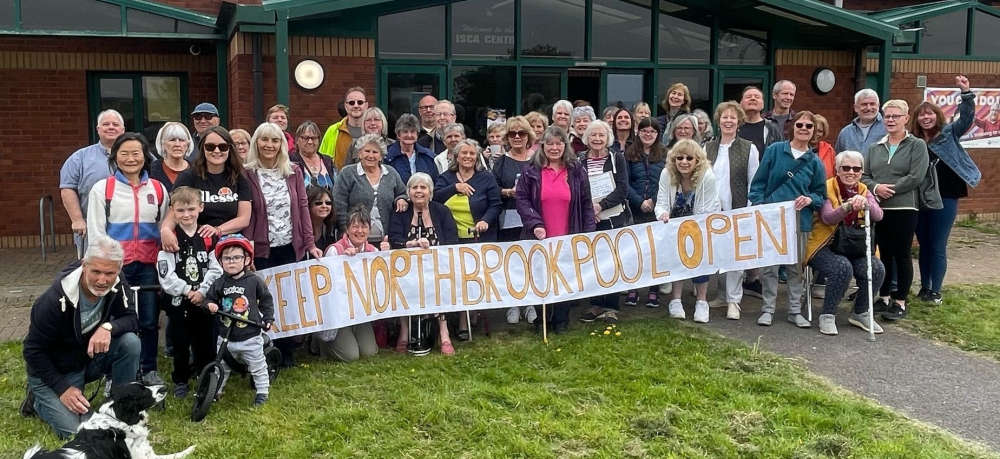
They're staying in 'League 1' as rest head for Championship
If local politics were football, Devon and Torbay are about to enter the Championship, whilst Plymouth is choosing to play on its own.
And the devolution deal planned will see more power and money coming Devon’s way.
It''s been hailed as ‘fantastic’ by the leader of Torbay Council. And while Devon County Council’s top councillor agrees it is hugely significant, his counterpart at Plymouth City Council has decided it would be a ‘backward step’ and wants no part of it at all.
Under the deal announced by the government last week, Torbay and Devon will become one powerful combined local authority.
But Plymouth will not be part of the union. Exeter City Council and Devon’s other district councils – West Devon, Mid Devon, East Devon, North Devon, Torridge, Teignbridge and South Hams – are also not part of the deal and will remain intact.
The people involved in Torbay and at Devon County Council are adamant that the new combined authority is not a merger, but instead two councils coming together as equal partners.
For football fans, imagine Exeter and all of those districts are in League Two. As unitary authorities, Torbay and Plymouth are currently with Devon County Council in League One.
But the devolution deal means that while Plymouth will choose to stay where it is, the new Torbay/Devon combo will be promoted to the higher-stakes Championship of local government.
The Premier League remains the domain of giant mayor-led authorities like those in Greater Manchester, Liverpool and South Yorkshire. The Torbay/Devon combined authority will not have an elected mayor. But it should have more resources.
The new partnership will be run by a ‘cabinet’ consisting of three elected councillors from Torbay and three from Devon, probably the leader of each council and two more.
The district councils will have four seats at the table between them, and there will be places for other people to be appointed. These could include business leaders, education chiefs and the county’s police and crime commissioner.
An overall leader will be chosen by members of the ‘cabinet.’
Supporters of the deal say it will give the combined authority (CA) a seat at the top table when the government doles out grants and support for projects covering issues such as local transport, adult education and the drive to achieve ‘net zero’ in carbon emissions.
Nigel Long of the Local Government Information Unit says that by this time next year the majority of the population in England will be living in council areas covered by a combined authority.
More powers are coming, too. Housing investment and the regulation of social housing are among the policies being considered for devolution by the current government.
And in the future, says Mr Long, devolved local authorities could even take back control of energy, transport and water for the first time in decades.
The Local Government Association says a combined authority allows a group of two or more councils to collaborate and take collective decisions across council boundaries. It says it is ‘far more robust’ than an informal partnership or even a joint committee.
It goes on: “The creation of a CA means that member councils can be more ambitious in their joint working and can take advantage of powers and resources devolved to them from national government.”
The government says a transfer of power from Whitehall to local leaders will help to address weak economic performance and the high regional levels of inequality.
In July, the Institute for Government said: “Devolution has led to improved decision making in many places – but is no silver bullet. Devolution deals have enabled local leaders to allocate resources, regenerate their economies and reshape public services in light of local needs and preferences.”
Labour supports devolution, too, meaning that the Torbay/Devon process is unlikely to be derailed whatever happens at the next general election.
Torbay says the new deal is “ground-breaking” and will build on the bay’s long history of working as partners with the county council. Projects like the A380 South Devon Highway were founded on the close partnership between the authorities.
Torbay Council leader David Thomas said: “We see real opportunities from our continued working together on transport and other key issues across Devon and Torbay, and we are confident this devolution deal will bring positive benefits for our residents, economy and communities.”
And John Hart, leader of Devon County Council, added: “It will put Devon and Torbay in a new and very different relationship with government, one where we will have a stronger voice in Whitehall and an ability to influence policy.
“We have, for a long time, worked well as neighbouring authorities to deliver good public services for Devon residents and to tackle key local priorities. The prospect of significant government funding and powers devolved locally will enable us as a partnership to make a real difference to people’s lives.”
A public consultation will now be launched, and a final decision on whether or not the promotion to the ‘Championship’ goes ahead is expected early in 2024.
However, Plymouth City Council leader Tudor Evans has warned the proposed deal was “unreasonable and unrealistic.”
He said it would have seen Plymouth having less power and control over transport in the city, with no commitment to increased resources. The city has been working alongside Devon and Torbay on the deal for more than two years, from before the current Labour administration took over, but has now decided it doesn’t make sense for Plymouth.
Cllr Evans said: “The final deal on the table would have been a step backwards given that 25 years ago Plymouth became a unitary authority and took back responsibility for key areas such as education and transport.
“The aim of a devolution deal was to hand control from Whitehall to a Devon combined authority, not take away existing powers from Plymouth. The government is insisting that we surrender our powers and funding regarding transport. Therefore, we have no choice but to withdraw. It is massively disappointing.
“In the meantime, we wish our Devon and Torbay colleagues well in progressing a deal that is right for them.”
Categories: Policy
 Devon man to run round mainland Britain
Devon man to run round mainland Britain
 Decision on Exeter swimming pool due this week
Decision on Exeter swimming pool due this week
 South Hams tourism down, but average spending up
South Hams tourism down, but average spending up
 More East Devon council workers leaving
More East Devon council workers leaving
 Dartington pool expected to reopen
Dartington pool expected to reopen
 Honiton man jailed for terrorism-related crimes
Honiton man jailed for terrorism-related crimes
